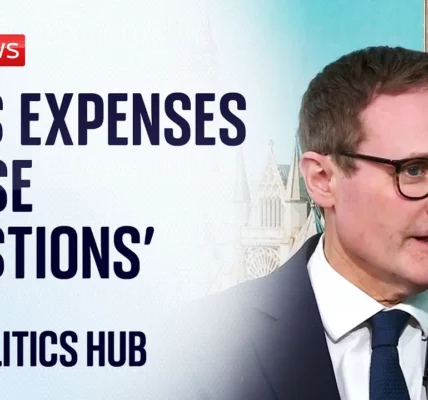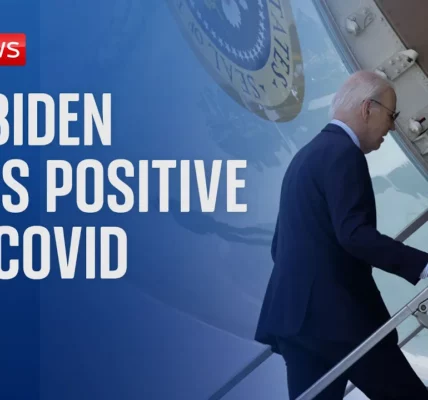Jack and Sam’s Podcast: Political Insights for September 3rd

Welcome to the second day of the new term of politics at Jack and Sam’s, the podcast that pops up at 7:30 every morning to give you everything you need to know about the day ahead in British politics in under 20 minutes. Today, we explore the latest significant events in Parliament, including the suspension of arms exports to Israel, the public ownership of rail services, and the Tory leadership contest.
Introduction to British Politics Today
As we kick off our discussion on this busy Tuesday, September 3rd, we reflect on a missed opportunity by the entire British cabinet to wish Keir Starmer a happy birthday. This serves as a humorous reminder that while the political landscape is often serious, human elements still play a significant role. Today, we will navigate through critical political developments, focusing primarily on the ramifications of recent government decisions and the dynamics within the Tory party.
Suspension of Arms Exports to Israel
The major political topic today is the announcement made by David Lammy regarding the suspension of a portion of arms exports to Israel. This decision has sparked considerable controversy and debate within various sectors of society.
Details of the Suspension
Britain has suspended 30 of the 350 arms export licenses currently held with Israel, amounting to just 0.2% of Israel’s total arms purchases. Despite its minimal quantitative impact, the political ramifications are profound:
- Immediate backlash from Jewish community leaders.
- Concerns raised over the implications for Labour’s relationship with Jewish voters.
- Potential geopolitical ramifications, particularly in relation to US-British relations.
Public and Political Reactions
The reactions have been swift and intense. Key figures, including the Chief Rabbi and the President of the British Board of Deputies, have expressed their disapproval. Public sentiment appears divided, with a significant portion of the population supporting an arms embargo, while others feel that the decision unfairly targets Israel:
- Criticism from traditional Labour supporters who feel the measure does not go far enough.
- Discontent from Israeli officials, framing this as a political shift against their country.
- Concerns about the impact on the Labour Party’s credibility and voter alignment.
Public Ownership of Rail Services
Another significant legislative move is the Passenger Railway Services Public Ownership Bill, which aims to return rail franchises in England to public control. This decision signals a marked shift in government policy and public sentiment regarding privatization.
Implications of the Bill
This legislation is expected to pass swiftly through the Commons, reflecting strong public support for nationalized rail services. Key points include:
- Approximately 70% of the public supports public ownership of rail services.
- Franchises are set to be returned to public hands by 2028, though immediate changes may not be evident.
- The government’s intent to improve rail services will need to be backed by a comprehensive plan to address public expectations.
Historical Context of Nationalization
Nationalization of services is not a common trend in recent British politics. This move is significant not only for its immediate effects but also for its long-term implications regarding the role of government in economic management.
Rachel Reeves’ First Treasury Questions
Today marks a pivotal moment for Rachel Reeves, who is set to face her first Treasury Questions as Chancellor. This change in roles from shadow to actual Chancellor signifies a substantial shift in political power dynamics.
Expectations and Challenges
Reeves is expected to face tough scrutiny from Jeremy Hunt, her predecessor, which could highlight her strategies and fiscal policies leading up to the upcoming budget:
- Anticipation of discussions surrounding the £22 billion black hole left by the previous government.
- Focus on the difficulty of filling this gap through immediate austerity measures.
- Potential for controversial decisions regarding public spending and project cancellations.
Tory Leadership Contest Developments
In addition to the aforementioned topics, another critical event is the ongoing Tory leadership contest. The dynamics of this contest are crucial as the party navigates its future direction.
Key Moments in the Leadership Contest
The first hustings event is scheduled for today, where candidates will present their visions and strategies to the party members. This event is pivotal as it sets the stage for the first vote and elimination tomorrow.
Candidate Dynamics and Strategies
As candidates vie for leadership, the internal party dynamics are revealing significant ideological divides:
- Robert Jenrick’s push for a more hardline stance.
- Tom Tugendhat’s previous suggestions about altering party dynamics.
- William Hague’s advice against committing to policies too soon.
Conclusion
Today’s podcast covers pivotal discussions in British politics, including the arms export suspension to Israel, the push for public ownership of rail services, and the Tory leadership contest. These developments not only shape the immediate political landscape but also have lasting implications for public policy and party dynamics. Be sure to tune in tomorrow as we continue to unravel the complexities of British politics and what they mean for the future.
For more insights, check out our related articles on Public Ownership Initiatives and Current Political Dynamics in the UK.
“`




